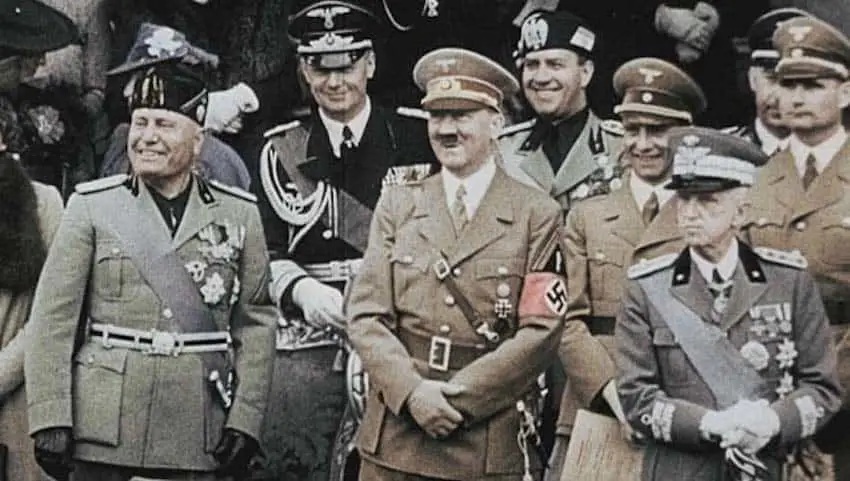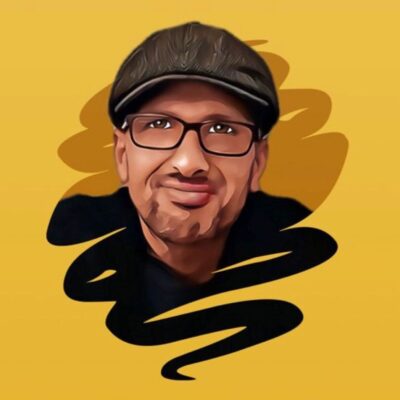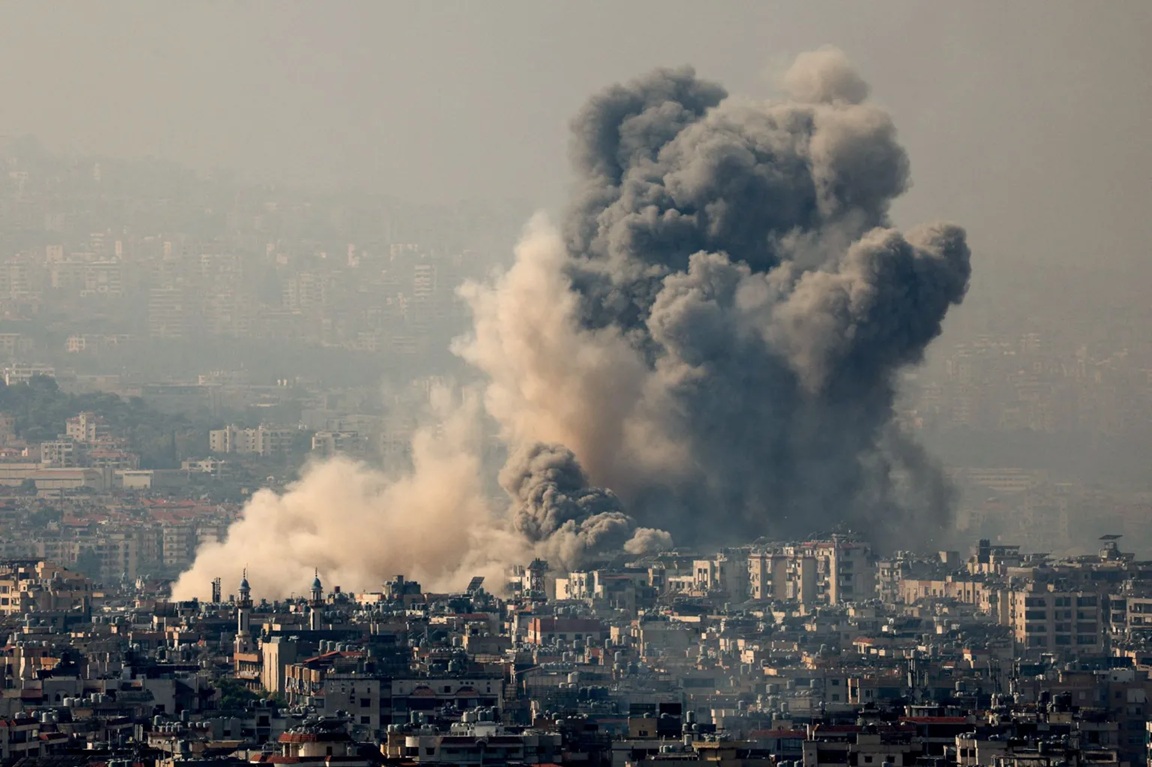
Recently, I watched the extraordinary television series Mussolini: The Son of the Century. Its echoes with our contemporary moment are unmistakable. Yet, it was not merely historical resonance that stayed with me - it was the striking clarity with which the series illuminated fascism as Mussolini himself envisioned it.
By Rafael Baroch
Mussolini’s fascismo, particularly in its early incarnation, was not the simplistic villainy invoked by today's casual discourse but a sophisticated political philosophy deliberately constructed as the antidote to liberal democracy's perceived chaos, division, and paralysis.
A curious irony emerges here: Il Duce, Mussolini’s self-bestowed title, differs from "The Dude" - our cultural archetype of laid-back liberalism - by just one letter. The shift in meaning is vast, reflecting two profoundly opposed visions of society and leadership. The comparison, though deserving of its essay, serves as an instructive juxtaposition, casting into sharp relief what Mussolini meant by power and authority, and what liberal democracies have since come to valorise as its antithesis.
This reflection prompts more profound questions. Today, fascist has become an indiscriminate epithet, flung recklessly across the political spectrum at anyone considered authoritarian, illiberal, or merely disagreeable. But what did fascism mean to Mussolini himself? And -more unsettling - how does his conception of the state, power, and freedom correspond, disturbingly, to the liberal democracies we inhabit today?
The Nature of Fascism
Mussolini was unequivocal: fascism was never meant to be a “temporary arrangement”, a stopgap to be dismantled once the crisis had passed. It was conceived as a permanent political–ethical organism - a total state in which individuals and groups functioned as organs within a single, unified body.
This body was to be animated by three forces: a vitalist belief in its destiny, an unashamed will to power, and an instinct for survival that superseded all other considerations.
At the heart of the fascist worldview lies an axiom as blunt as it is uncompromising: when a conflict cannot be reconciled, only power can decide. Mussolini dismissed compromise, dialogue, and even the most courteous forms of debate as inadequate for resolving the fundamental questions of political life. In his calculus, genuine decisions are never the outcome of persuasion - they are the product of an adversary’s total defeat.
From this premise flowed a doctrine of social order with almost surgical clarity: order is not the child of negotiation, but the offspring of decisive action. Compromise is not stability; it is merely a truce, fragile and fleeting, containing within it the seeds of the next confrontation. Therefore, the state - conceived as the supreme and indivisible authority - does not simply have the right to act decisively in defence of unity; it carries the duty to do so.
To hesitate would be to betray its very purpose, allowing disorder to corrode the collective body from within.
Freedom as a Political Construct
Here Mussolini’s conception of freedom merges seamlessly with his conception of power. "There is no such thing as absolute freedom," he proclaimed; "liberty is a duty, not a right." He drew a crucial distinction between individual freedom - always constrained by collective needs - and "the Freedom," defined by the state as collective, purposeful liberty. True freedom, Mussolini believed, exists not in opposition to the state but within and in service of it.
This idea is far older than Mussolini himself, rooted deeply in classical Greek thought, which distinguished between eleutheria - the citizen’s freedom to participate actively in the public order - and absolute personal freedom, regarded as dangerously corrosive to community cohesion.
Philosophical Foundations
I. Hobbes and the Leviathan
As early as the seventeenth century, Thomas Hobbes argued that freedom was not mankind's natural state but rather a political condition created and maintained by the sovereign authority. In his Leviathan, Hobbes posited a sovereign entity endowed with absolute power as necessary to secure internal peace and collective liberty. For Hobbes, the surrender of certain individual freedoms was the essential cost of achieving security and social cohesion.
II. Schmitt and the State of Exception
Carl Schmitt extended this logic, defining sovereignty as the authority to determine the state of exception - moments when normal laws are suspended. For Schmitt, politics revolves fundamentally around this decision-making capacity. Liberalism, he contended, denies this openly, preferring procedural illusions, and thus is repeatedly shocked when circumstances force it to act decisively.
III. Berlin and the Dual Concept of Liberty
Isaiah Berlin, one of liberalism’s leading theorists, further complicated our understanding by distinguishing "negative liberty"- freedom from coercion - from "positive liberty" - the freedom to achieve meaningful self-realisation within collective structures. Mussolini elevated positive liberty to an absolute, using it to justify state coercion. Berlin himself warned of the potential tyranny inherent in positive freedom, yet liberal democracies, he observed, often adopt similar coercions under more palatable labels.
History as a Mirror
It is tempting to view these ideas as alien to liberal democracy, yet historical reality suggests otherwise. Western democracies consistently employ power in precisely Mussolini’s terms, albeit with rhetorical moderation:
More recently:
In each case, the underlying logic mirrors Mussolini’s axiom: when the state deems unity or security to be at risk, power decides - swiftly, unilaterally, and without apology. What separates liberal democracies from his vision is not the action, but the narrative. Mussolini would state the principle plainly.
Liberal democracies clothe it in the language of defending values and preserving order. The effect, however, is the same: liberty is suspended, and the decision is framed not as a choice of power, but as a moral imperative. This is the genius - and the danger - of the liberal style: it makes coercion palatable by persuading you that it is not coercion at all.
The Monopoly of the Victorious Ideology
Liberalism’s post-1945 triumph produced something historically rare: an ideological monopoly. It did not merely outcompete its rivals; it rewrote the official story of the twentieth century in a way that enshrined itself as the embodiment of political virtue and cast all defeated alternatives as embodiments of political vice.
Within this narrative, liberal democracy became not one option among many, but the natural culmination of history itself, a permanent settlement rather than a temporary victory.
Concepts such as freedom, equality, and human rights - once contested by competing philosophical and political traditions - were absorbed into the liberal lexicon and trademarked as its exclusive property. The effect was subtle but decisive: to question liberalism’s definitions of these values became, by definition, to ask the values themselves.
Alternative systems - revolutionary socialism, collectivist nationalism, radical forms of direct democracy - are not defeated in open contest but disqualified in advance. They are framed as illegitimate not because they fail on their terms, but because the moral vocabulary needed to defend them has already been ruled inadmissible. Debate is replaced by denunciation, and the range of the politically thinkable contracts accordingly.
In this way, Western liberalism governs not only through its political institutions or its economic reach, but by controlling the conceptual boundaries of permissible thought. It defines the terms, sets the categories, and polices the meanings.
This is what Michel Foucault called regimes of truth: systems in which power and knowledge are fused, where the authority to define reality becomes the most decisive form of rule. The genius of this arrangement lies in its invisibility. You are free to think anything you like - so long as it is already inside the box that has been built for you.
Seen in this light, it is not entirely wrong to say - as Mussolini once did with his characteristic bluntness - that the ultimate victory of the liberal order would be to so thoroughly absorb and redefine the language of politics that its former adversaries could no longer even articulate themselves. This is the more profound paradox: liberalism has not merely defeated fascism, communism, or other rivals on the battlefield of politics; it has rendered them linguistically and conceptually obsolete. Their categories no longer translate into the dominant grammar of legitimacy.
In that sense, Mussolini’s grim forecast was fulfilled, albeit in a form he might not have foreseen: the enemy vanishes not because it is annihilated, but because the very tools to name it are confiscated.
The Deeper Paradox
Ultimately, the distinction between fascism and liberal democracy resides not in their use of power but in their rhetoric surrounding power. Fascism openly acknowledges power as foundational and liberty as conditional. Liberal democracy insists liberty is absolute, yet justifies its suspension as a defence of freedom itself.
This is not a trivial semantic quibble; it breeds a deep and corrosive cognitive dissonance. Citizens are raised to believe that freedom is unconditional, viewing each limitation as a betrayal. The liberal reluctance to admit that restricting liberty can, at times, be both legitimate and necessary turns political life into a theatre of self-deception. The gap between what is declared and what is done widens into a chasm of mistrust.
To recognise this is not to advocate for authoritarianism, but to demand a higher standard of intellectual honesty. Liberty, as a political value, has never been self-sustaining; it is always contingent on the power that safeguards it. Power is not an aberration in politics - it is politics in its most elemental form. To deny this is to live in a myth, and myths, unlike ideologies, require no evidence to command loyalty.
The gravest threat facing the West is not an enemy at its gates, but its refusal to confront this paradox: its unwavering belief in a narrative of absolute freedom, even as it deploys - often with quiet efficiency - the same coercive logic it condemns in its adversaries. This is not hypocrisy in the shallow sense; it is structural, built into the architecture of the system. And it is precisely this refusal to name it that allows it to endure.
Whoever controls power defines the scope and meaning of freedom. To pretend otherwise is not virtue but negligence - and negligence, in political life, is how republics decay, how democracies hollow out from within, and how the language of liberty becomes a mask for its erosion.
And here, the most unsettling irony comes into focus: the liberal order has achieved precisely the kind of victory Mussolini imagined - not by turning its adversaries into martyrs of resistance, but by rendering them speechless. It governs not only the institutions of power, but the very vocabulary in which power can be described, contested, or even conceived.
The vanquished are not simply silenced; they are stripped of the grammar with which to name their defeat. In this quiet monopoly of meaning lies liberalism’s most enduring triumph - and, perhaps, its most dangerous illusion.






